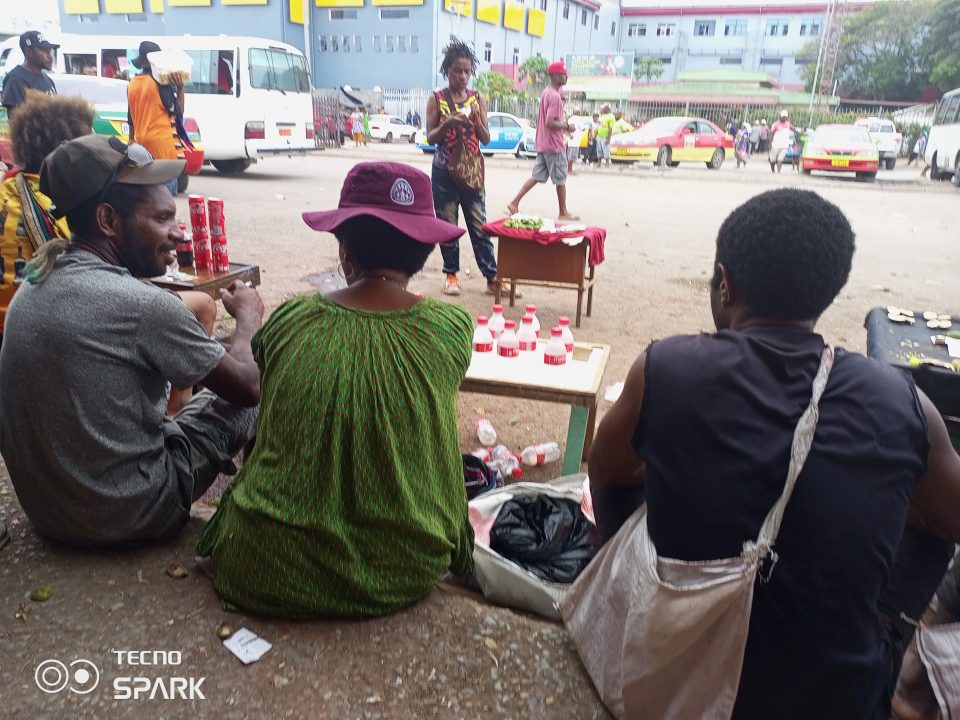By Natasha Ovoi
Stand a little bit longer than intended at a random spot at Boroko and you might just lose something. One rarely sees it coming, let alone feels it. Such is the level of pick-pocketing and theft in Port Moresby, especially during special seasons and events. With such petty crimes on the rise, our city’s representatives of the law are forced to take certain measures.
Recently witnessed are ongoing clearing ups by Police of illegal markets around the city’s capital. As reported on media, including this news room, this strenuous activity is being carried out as an effort to reduce criminal activities in and around Port Moresby aiming at keeping the city safe.
NCD Metropolitan Superintendent, Silva Sika stated that before the removing of illegal markets, his officers had conducted awareness throughout the city warning sellers to not do sales on and around undesignated areas such as bus stops, footpaths, shop fronts, traffic lights and public areas.
In addition to attempting to eliminate pick-pocketing and reselling of stolen items, the clearing of illegal markets around Port Moresby also discourages underage labour. One can always hear their young confident voices over the crowd promoting products on sale with so much assurance. If that didn’t work, they would resort to sincerely appealing to people passing by to buy things from them.
Just last month, this news room reported 25 street sellers being arrested and charged under the Summary Offences Act, Section 44B for Illegal Street sales and Under the NCDC Litter Act, Section 11, Sale of Betelnut. They were given the decision to either pay a bail fee of K300 or remain in custody until they appear in court. One would see this as a message for all street vendors.
However, even with much manpower, the word to describe illegal vendors is “resilient”, as sellers still flocked to expelled areas with their items to sell the second the men in blue look the other way.
One such individual sits next to a piece of cloth on the ground next to the BSP branch at Boroko. Apato Negi, a 33-year-old woman from Upper Bena, Eastern Highlands Province. The old floral cloth in front of her is a makeshift market table for biros, correction pens, pencils, school socks and a backpack to sell. Apato, an unemployed single mother of one brings home bread and butter this way, her livelihood lays on the piece of cloth that could be easily packed up and carried off the minute the cops come storming.
In her heavy dialect she responded in pidgin when asked why she chose to sell on the streets and not at the main markets. “There is fast money in street sales, sitting at the main market, we don’t make much as we ought to”.
The money Apato makes in a day goes towards food for her and her extended family and, further expenses for her 8-year-old son who had recently began school.
“We make about K100 to K150 in a week when there are a lot of customers, I’m gathering the profit to send my son to school”, she added with a confident smile.
Apato, who had been in Port Moresby for almost 10 years now said “I never had a permanent job, I dropped out of school at grade 3 because of a tribal clash back then”.
On the other side of that same building at Boroko is 27-year-old Julie, carrying around her Tapa patterned Blouses to sell with a sense of alert in her strides. Talented in sewing but unemployed, she said she resides at Taurama and does her daily sales of meri blouses at either Gordons or Boroko.
“I switch between the two spots. When I get chased from one location by police, I go to the next one,” she said with a laugh.
“But that is how we survive, what else can we do?” Julie reasoned.
Cecelia, a mother of 9 from Goilala, Central Province sympathizes to this. Under the shade of a bent umbrella in the blazing sun next to the Gordons footpath she sells her rice balls. Two of her kids sat by her side, Peter 7 and Jacklyn 13, both nudged closer to her to get a bit more of the shade.
“The police do chase us and most times we just leave what we are selling and runaway,” she expressed that such loss usually meant they won’t have much or even nothing to eat in the evening when that happens, since both she and her husband are unemployed. She travels all the way from 14 mile to Gordons to sell her rice balls for K1.
When asked why she doesn’t sell her rice balls at the General market like the other sellers that do so at Gordons, she responded, “the cooking place is always full, and I won’t have as much customers as I might out here”.
Cecelia expressed that with so many other options in the market, people rarely buy her rice balls.
MetSup Sika rightly said, “the public must also stop from buying from them so they will stop. I want you all to work with the police to keep the city clean and crime free. My police officers and I can only do so much, to fight crime, and we need your help and support.”
As much as there is good coming from the ban and clearing of illegal markets by our respectable law enforcers around the city, there are also people like Apato, Julie and Cecelia in genuine need of fast money from street selling. General markets have increased around the city since 2017, however, it seems street sellers have doubled since then.


